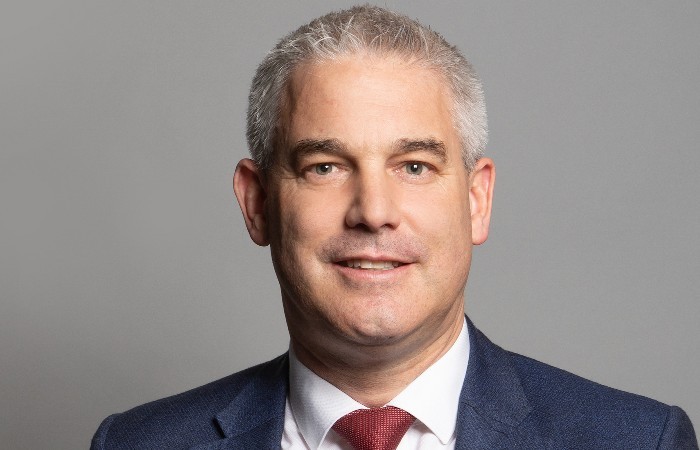News 
Health secretary defends himself over Pharmacy First delay

By Neil Trainis
The health secretary Steve Barclay defended himself over the government’s failure to follow up on the PSNC’s proposal to ministers nearly a year ago of a Pharmacy First scheme in England as he was grilled by All-Party Pharmacy Group chair Taiwo Owatemi during a health and social care committee session.
Responding to Ms Owatemi’s suggestion during the session last Tuesday that the government was taking too long to decide whether or not to introduce the scheme, which pharmacy leaders have long called for, Barclay (pictured) said: “I’ve only been appointed for less than 12 weeks, so you’ll forgive me when we’re talking about what was happening a year ago.”
The PSNC asked the Department of Health and Social Care and NHS England to fund the scheme in England in March last year. Barclay was health secretary between July 5 and September 6 last year during his first stint in the post and has been in the role second time round since October last year.
Barclay, however, insisted there was “strong agreement” between himself and Ms Owatemi on the idea there is “a significant role for pharmacy to do more” and conceded the DHSC still needed “to look at the financing” of a Pharmacy First scheme.
“There’s a clear trajectory in terms of additional services that can be delivered by pharmacy,” he said, adding the DHSC is looking at ways to develop the NHS app so it links patients to pharmacies instead of GP surgeries.
“Pharmacy offers opportunity in terms of ease of access and therefore different routes for patients. I’m very keen on one of the workstreams that we’ve got under way in the Department to look at how we repurpose the NHS app because that had 31 million people who downloaded it and was largely downloaded so people could get their Covid pass. And often it is sat being underused on phones.
“There’s a huge opportunity to use the NHS app for people who may originally be planning to book a GP visit but who, if they find out they can get the service they need from a pharmacist much quicker, through their app will see an opportunity.”
Meeting “statutory responsibility” over access to medicines?
Ms Owatemi also questioned Barclay over whether he was meeting his “statutory responsibility” as health secretary to ensure patients have access to medicine given 670 pharmacies have closed in the last five years, 40 per cent of them in the most deprived parts of the country. Barclay insisted the government was “investing more” in community pharmacy.
“We’ve put an extra £100 million on top of the £2.6 billion a year we commit to community pharmacy to expand the range of clinical services,” he said.
“We’ve got over two milllion patients who are being referred to community pharmacy from NHS 111 as well and one of the issues I’m very keen on is to explore what more we can do in pharmacy, not least given the pressures on GPs and the opportunity to look at what it is people go to GPs for where potentially there is scope to do more at the pharmacy. And we’re already doing that.”
Ms Owatemi said “the pattern of pharmacies shutting” had given many pharmacists “the feeling that the government’s policy seems to be driving community pharmacies to collapse.”
She asked Barclay whether the government thinks there are too many pharmacies and if it believes “they need to shut” or whether “professional snobbery in the NHS” was preventing pharmacies from providing a service.
“I don’t know whether it’s snobbery within the NHS. Sometimes change is difficult. What I share your desire to do is deliver change so that pharmacies do more and the direction of travel on that,” Barclay said.
“If I look at blood pressure, for example, we’ve got 8,000 pharmacies now providing blood pressure checks.”
Photo: UK Parliament.

Record my learning outcomes